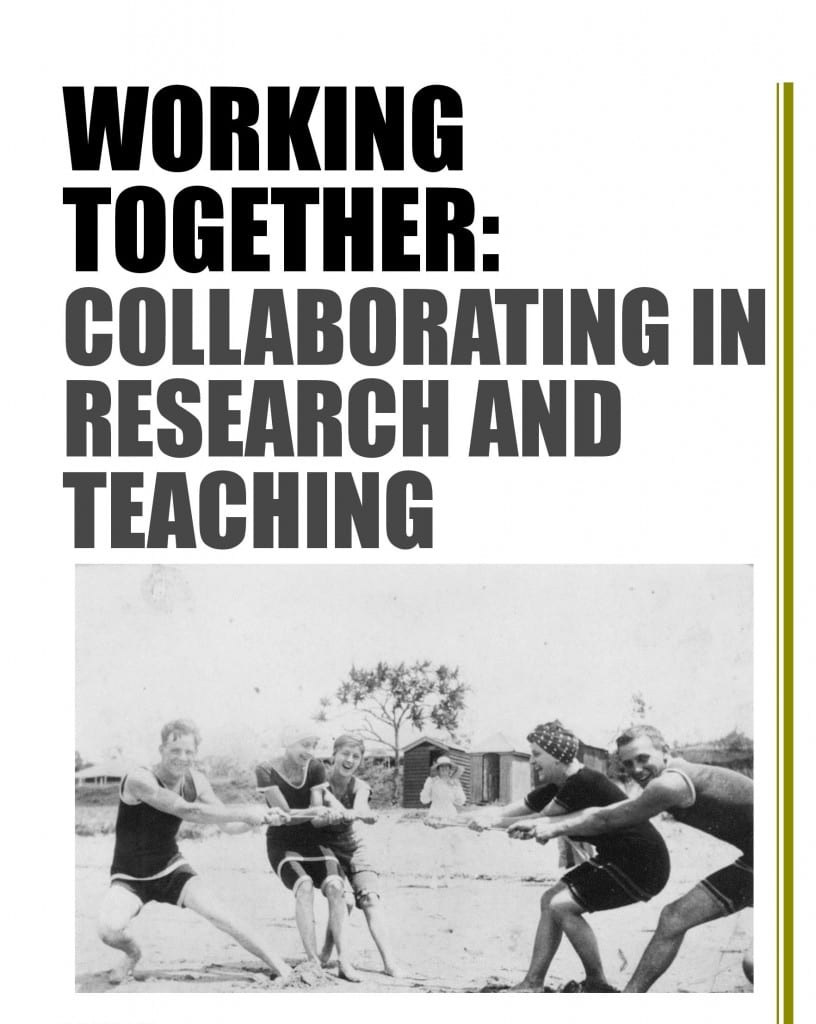Meritxell Simon-Martin is a Marie Curie Fellow at Roehampton University. She is writing a monograph on Barbara Bodichon’s epist olary Bildung in collaboration with the Schools of Education at Roehampton University and at Goethe University (Frankfurt). She is also Research Associate at the Institut des Textes et Manuscrits Modernes (ITEM), Ecole Normale Supérieure de Paris, where she carries out a critique génétique project on Barbara Bodichon’s feminist publications and a translation of her works from English into French (Classiques Garnier).
olary Bildung in collaboration with the Schools of Education at Roehampton University and at Goethe University (Frankfurt). She is also Research Associate at the Institut des Textes et Manuscrits Modernes (ITEM), Ecole Normale Supérieure de Paris, where she carries out a critique génétique project on Barbara Bodichon’s feminist publications and a translation of her works from English into French (Classiques Garnier).
The following was originally posted on Meritxell’s own blog.
On 19th May I attended the Academic Job Boot Camp sponsored by History UK and supported by History Lab at the Institute of Historical Research in London. What a great event!!! It shows a genuine willingness from the part of the organisers to make transparent and comprehensible the process of recruiting early career researchers. I truly appreciate the opportunity I had to learn both from the organisers and the other candidates!

In order to participate, some weeks before the event I applied for the imaginary lectureship in history that the organisers had created. I sent my CV and cover letter as we would normally do for a real job application. I also prepared a 5-minute presentation on how my research informs my teaching. The day of the workshop we had the opportunity to take the steps real shortlisted candidates go through: the 5-minute presentation on teaching, the face-to-face interview and the interview lunch. The best of this mock application was that we had the opportunity to get tailored useful feedback, not only from organisers but also from peer participants – the latter wrote anonymous comments.
Here’s a summary of some of the tips we were given on the dos and don’ts when applying for a lectureship in history:
Which positions should you apply for?
For any lectureship in history really! Newly awarded PhD candidates are rarely offered permanent lectureships, but a fixed-term position may lead to a permanent one. Also, the job description might focus on a sub-field in history out of your scope of specialization but, believe it or not, sometimes recruitment committees simply end up making up their minds for the best candidate, regardless of her field of expertise. Why don’t give it a try then?

What should your CV look like?
Academic CVs are long. They can have up to 10 or 15 pages. But recruitment committees have piles of CVs to read on their desks. So, a good academic CV is one that provides two readings: skimming and in-depth scrutiny. Panellists will first scan your CV to decide whether to place it on the “maybe shortlisted” pile or to the “definitely no” one (i.e. the bin!). In order to help them take this first decision, a CV should show clear headlines with key words in bold. If they are interested, they will want to know more about the different academic experiences you put forward. The CV should therefore provide short paragraphs explaining these outcomes and skills. Don’t forget to highlight what research you will be submitting for the REF. If you run a blog or are a social media user, make sure you upload an updated version of your CV!
What should your cover letter look like?
Contact the head of the committee only if you have a specific question about the position. Otherwise, write a catchy 2-page cover letter addressing the criteria of the job description. Do some on-line research on the institution, the department in question and its members. The cover letter should look like a presentation of the skills you have and how you can contribute to the department’s curriculum and research output. Be succinct, use an engaging writing style and make sure you proofread the text for spelling, typos and… the right name of the institution! If you have a template cover letter and you adjust it to specific positions, make sure you name the appropriate university! Ask colleagues and friends to read it for feedback. And ask yourself: is this the self-image as an academic I want to convey?
How should you prepare for the presentation and interview?
Reread the job description and the skills they are looking for in the future colleague. These rereading will give you a sense of the possible questions you might be asked. Think of 3 or 4 messages you would like the panel to retain from you: An award-winning-book author? A researcher capable of attracting funding? An international versatile team worker? Then think of at least 2 questions per section (e.g. teaching, research, yourself as a colleague, public engagement) and prepare an answer that includes these messages. The idea is to have a clear view of how you want to project yourself (how you wish the panel perceive you) and transmit this image via the messages you include in your answers, no matter what the question is. Frame your answers in a way you convey these self-presentation messages but don’t forget to fully address the question asked though! You can also prepare a sheet describing a teaching course: with its title, content, objectives, timescale, assessment, pedagogical approach, the module is part of, etc. If you have the opportunity, you can distribute this handout to the panellists when discussing what courses you could contribute to and how they would fit within the department’s curriculum.

How best to perform in the interview?
Don’t take for granted panellists have read your CV. It is often the case they are given information about the candidates only hours before the interview! Think of the key elements of your CV you want them to retain and mention them during the interview. Don’t focus too much on past achievements. Convey rather an enthusiastic but realistic mid- and long-term statement of ambition. What are your book projects? Be specific about what you will submit to REF and why you think it is going to be 4*. How do you envision strengthening your teaching skills? What are the skills you want your students develop and how are you going to achieve this? Be specific about your teaching approach. How you mean to lead, design, run and assess courses and modules is as important as what you can or intend to teach. Can you prove you are a skilled and inspiring lecturer? Quote from students’ feedback questionnaires! When answering questions, frame your replies positively: show how unique you are and turn any weakness in your CV into an asset if presented from a different angle. Be respectful when referring to former work places and colleagues and be polite to the panellists. Remember they will ultimately be asking themselves: Will she be an easy-going department colleague? Is she a lecturer likely to raise complaints among students? Ultimately, if you are asked if you will take the job, say yes! Make sure you show them you really want to work with them!
What next?
If you are not shortlisted or you were not successful during the interview stage, don’t take rejection personally. Some recruitment committees provide constructive feedback. Use this precious information to think about how you can do better next time! Having said that, each university has different recruitment criteria and often panellists disagree on who the best candidate is. Conclusion: take on board criticism to ameliorate (self-improvement should be a personal motivation throughout our lives anyway!) but be yourself. Sometimes it is simply a question of connecting with people spontaneously, of being in the right place at the right time.
I hope you find these tips helpful. If you want to test them live, sign up for next year’s edition of the Academic Job Boot Camp!
Best luck to candidates, including myself! 
 olary Bildung in collaboration with the Schools of Education at Roehampton University and at Goethe University (Frankfurt). She is also Research Associate at the Institut des Textes et Manuscrits Modernes (ITEM), Ecole Normale Supérieure de Paris, where she carries out a critique génétique project on Barbara Bodichon’s feminist publications and a translation of her works from English into French (Classiques Garnier).
olary Bildung in collaboration with the Schools of Education at Roehampton University and at Goethe University (Frankfurt). She is also Research Associate at the Institut des Textes et Manuscrits Modernes (ITEM), Ecole Normale Supérieure de Paris, where she carries out a critique génétique project on Barbara Bodichon’s feminist publications and a translation of her works from English into French (Classiques Garnier).






You must be logged in to post a comment.